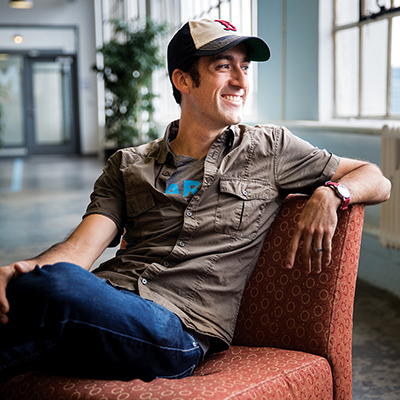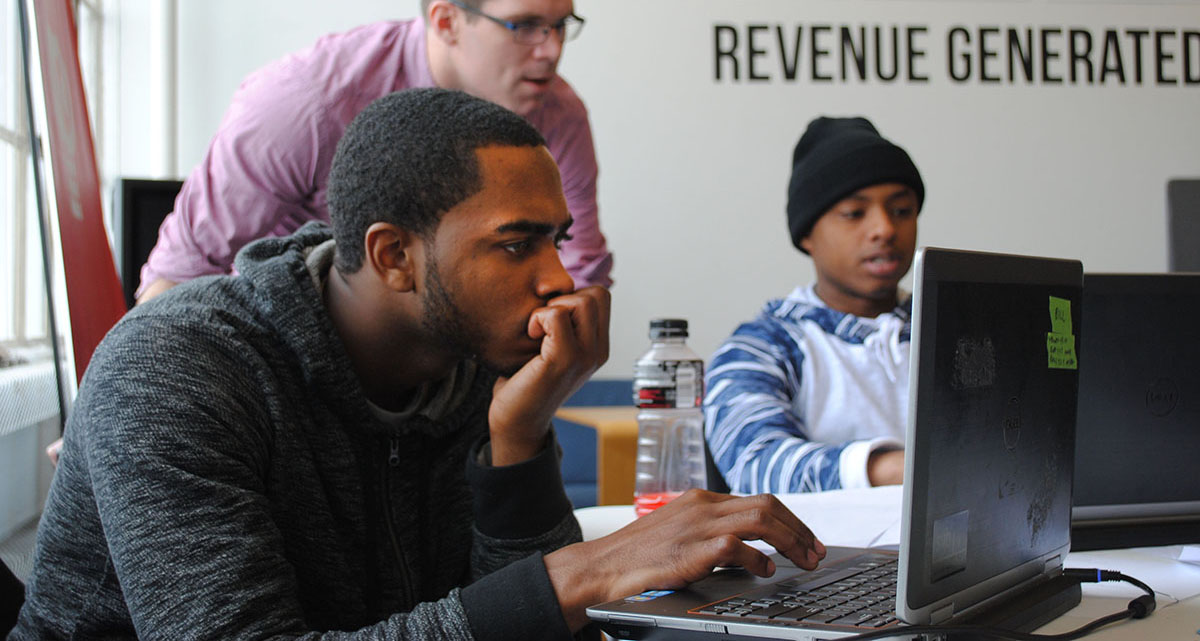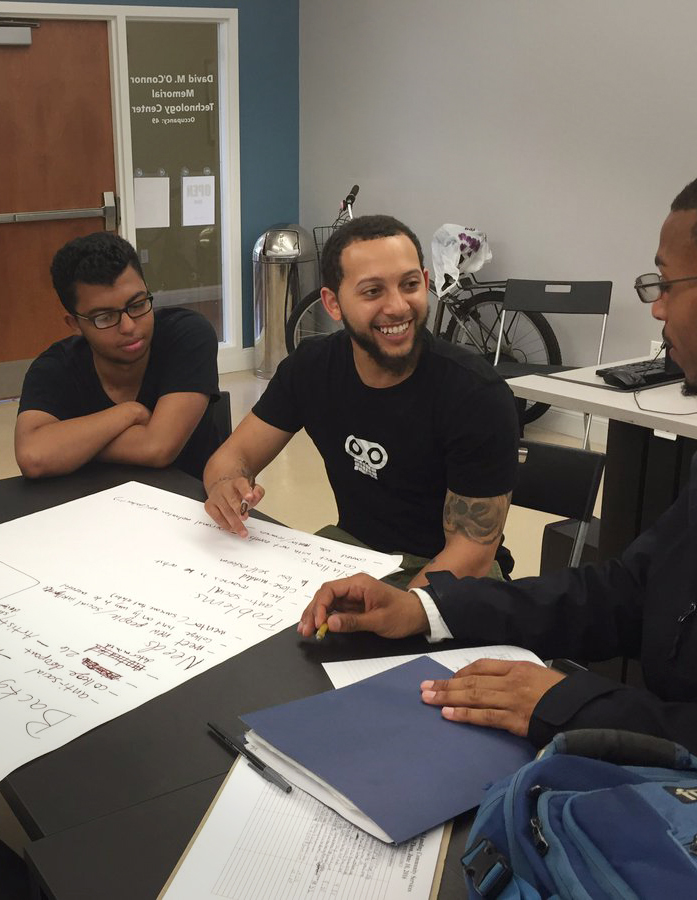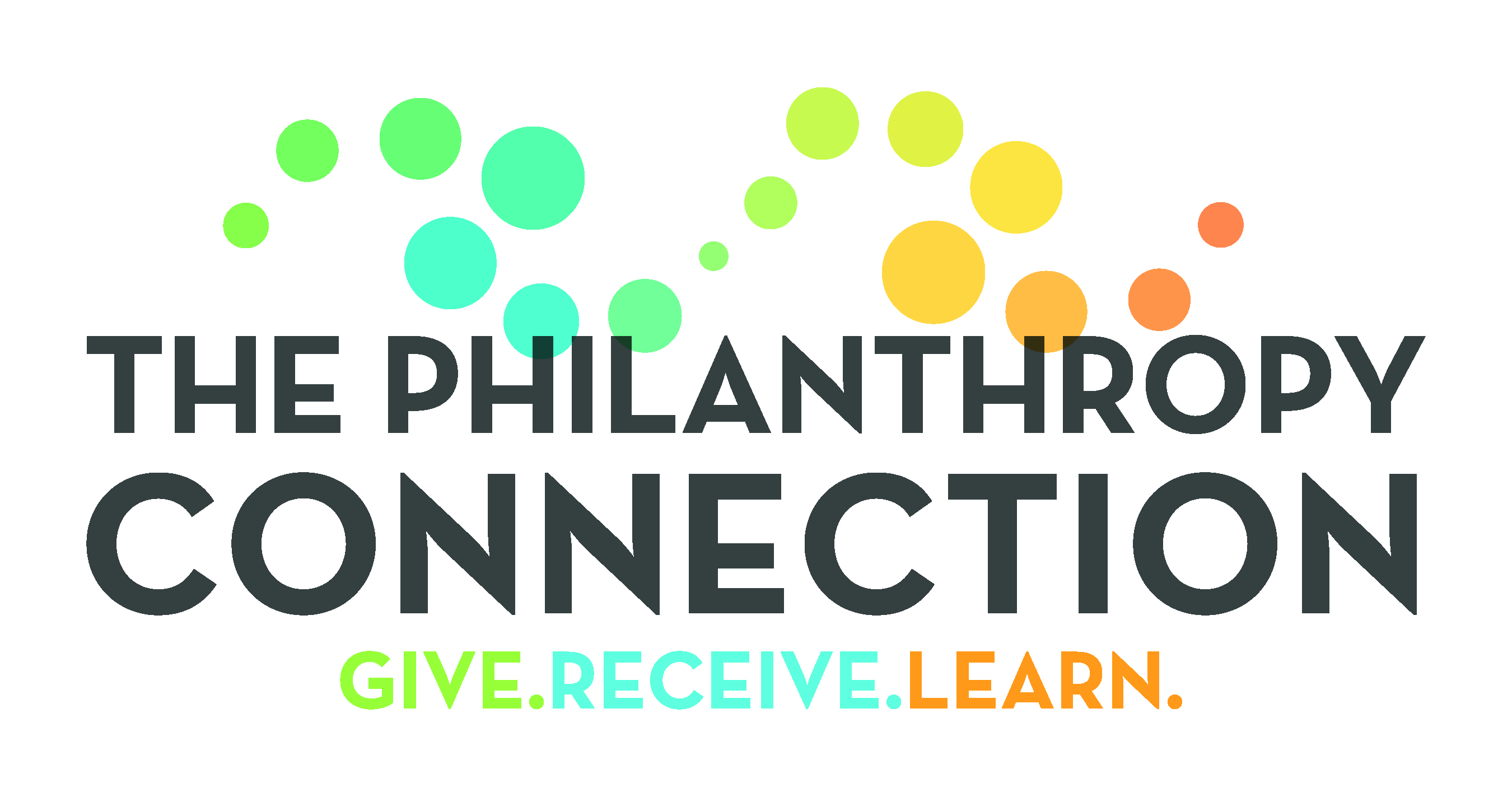The Interview with David Delmar

Resilient Coders is an intensive, immersive, all-day non-profit coding bootcamp that trains people from traditionally underserved communities, providing them with the technical skills they need to be competitive and successful in today’s workforce. TPC liaisons Cynthia Andre and Bridget Dunn were pleased to interview Resilient Coders founder David Delmar about his experiences, the organization, and the role TPC can play in helping Resilient Coders succeed.
Tell us a little about yourself and how you came to found Resilient Coders.
I was an active member of the tech start-up community, most recently leading a team of designers and developers at PayPal. I’d fallen in love with technology because of its promise of meritocracy, but became increasingly frustrated by the lack of diversity. If technology were truly meritocratic, a city’s tech ecosystem would reflect its population. It doesn’t. Having been raised in a Spanish-language household, I began exploring the reasons why so many people in Boston face significant barriers to entry in the tech community. I began taking vacation days from work to volunteer at a Department of Youth Services facility, teaching young men in lock-up the basics of programming languages HTML and CSS. And I discovered that many of the young men I was teaching were intelligent, resourceful, ambitious, and curious; the same qualities I was trying to hire for at PayPal. It occurred to me that the difference between the successful technologists I worked with and the young men at DYS was simply a question of access, opportunity, and an eminently trainable skill. I felt I could provide all three.
 In September of 2014, I launched Resilient Coders, with the support of the tech community and the Boston Police Department. I decided that the program would be built in exactly the same way that software is built: by launching small batch experiments, measuring their success, and pivoting according to learnings. After running a series of short cohorts at a number of public schools, and one at South Bay House of Correction, I landed on a successful and scalable model: On January 2016, Resilient Coders launched its inaugural Bootcamp, for young adults who face significant barriers to entry to the tech community, and the digital agency that would give them their first job. You can hear me further expound on the founding story on HOT 96.9.
In September of 2014, I launched Resilient Coders, with the support of the tech community and the Boston Police Department. I decided that the program would be built in exactly the same way that software is built: by launching small batch experiments, measuring their success, and pivoting according to learnings. After running a series of short cohorts at a number of public schools, and one at South Bay House of Correction, I landed on a successful and scalable model: On January 2016, Resilient Coders launched its inaugural Bootcamp, for young adults who face significant barriers to entry to the tech community, and the digital agency that would give them their first job. You can hear me further expound on the founding story on HOT 96.9.
What was your goal?
We have one goal: We are singularly focused on ensuring that people from low-income communities, especially those without college degrees, gain the skills necessary to be gainfully employed or self-employed in skills that are relevant to the changing talent needs of the 21st century. We reject the notion that it is sufficient to provide training without chaining a series of opportunities that end with employment. We lament the prevalence of training programs that provide skills that will either soon be obsolete, or essentially perpetuate the cycle of underemployment by training would-be engineers to be something that doesn’t leverage their talents. Our communities deserve better. Our impact is narrow but deep, by design. We work with relatively few learners, provide immersive and intensive bootcamp-style training, hire them back in order to provide them with the skills we gain during our first job, and support them through their job search. We have sent graduates to paid internships and jobs at companies such as Microsoft, Boston University, Wayfair, Hubspot, Bison, General Assembly, The Boston Globe, Fresh Tilled Soil, and others.
 Tell me about how TPC’s grant is being used. What is the impact of TPC funding?
Tell me about how TPC’s grant is being used. What is the impact of TPC funding?
It’s not enough for programs like ours to be made available for free. The populations that we work with cannot afford to take four months away from the workforce. So we must also provide a fair stipend. The Philanthropy Connection’s investment, along with our partners’, allows us to provide competitive educational programming, for which comparable for-profit bootcamps charge around $17,000, for free. And we provide a stipend. This is what it takes to seriously level the playing field, and make good on technology’s promise of meritocracy.
What else do you hope to gain from your relationship with TPC? Are there other ways that TPC members could help you?
Now through the end of April 2018, we’re raising funds, as well as jobs. We’re running a campaign called 50×30. That’s $50,000, and 30 commitments to hire an apprentice out of the program. You can check out resilientcoders.org/50×30 to learn more about why we’re running this initiative.
Buy the Resilient Coders hoodie online! They make fantastic gifts. Details for those hoodies are accessible from resilientcoders.org/50×30.
What is most gratifying about your work? Is there an example that stands out for you?
There are many, but here are two. Maria was a member of the Dream 9, a group of young undocumented immigrants who attracted national press a few years ago. She had been arrested, and thrown into solitary confinement for delivering a speech on top of a cafeteria table at her detention facility. Today, she is teaching others to program, at General Assembly. You can hear her story on NPR and meet her in this short video (at 0:44).
Micah dropped out of high school when he was young, due largely to instability at home. He was homeless for a while, and was involved with DYS. These days he’s a full time programmer for The Boston Globe. If you’ve visited Boston.com, you’ve seen some of his work. You can hear Micah tell his own story at a Globe storytelling event.
